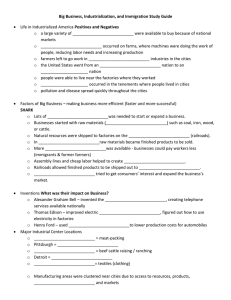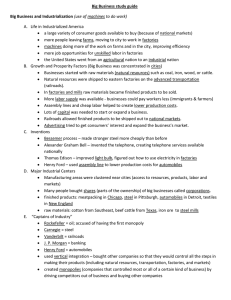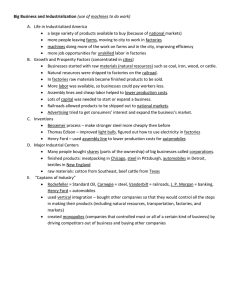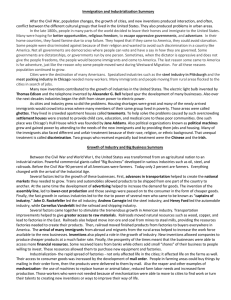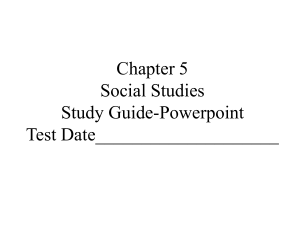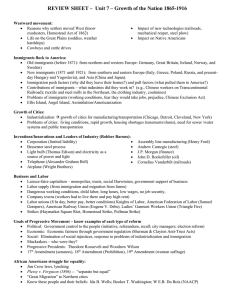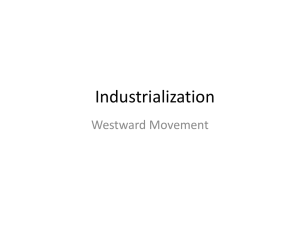Big Business, Industrialization, and Immigration Study Guide Positives and Negatives
advertisement
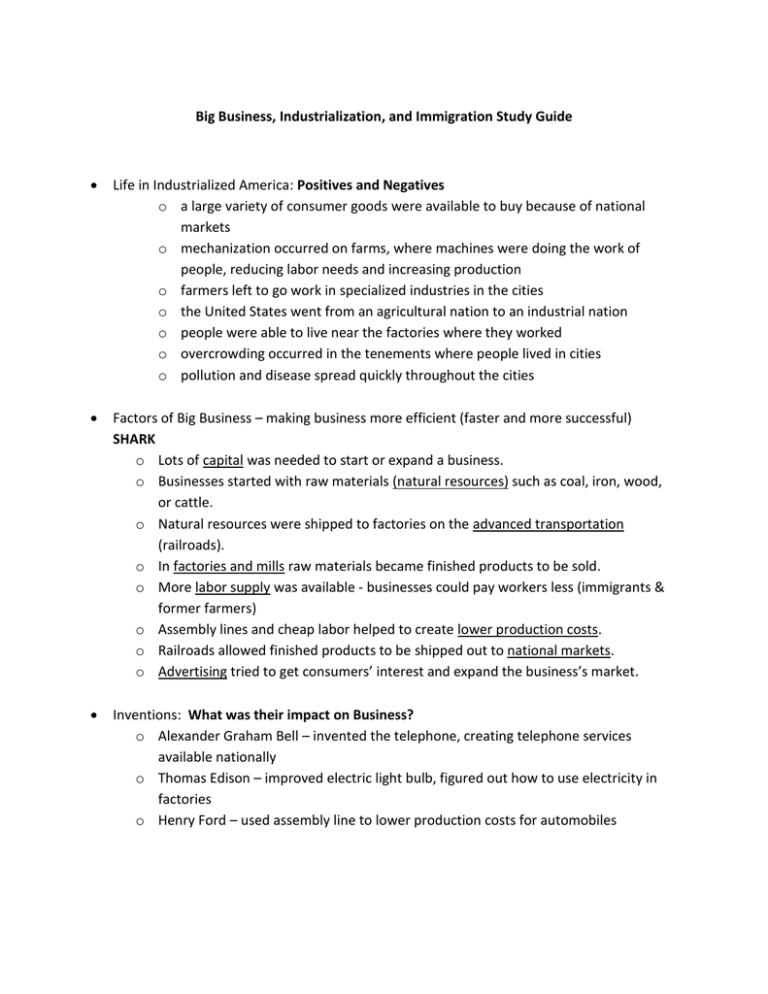
Big Business, Industrialization, and Immigration Study Guide Life in Industrialized America: Positives and Negatives o a large variety of consumer goods were available to buy because of national markets o mechanization occurred on farms, where machines were doing the work of people, reducing labor needs and increasing production o farmers left to go work in specialized industries in the cities o the United States went from an agricultural nation to an industrial nation o people were able to live near the factories where they worked o overcrowding occurred in the tenements where people lived in cities o pollution and disease spread quickly throughout the cities Factors of Big Business – making business more efficient (faster and more successful) SHARK o Lots of capital was needed to start or expand a business. o Businesses started with raw materials (natural resources) such as coal, iron, wood, or cattle. o Natural resources were shipped to factories on the advanced transportation (railroads). o In factories and mills raw materials became finished products to be sold. o More labor supply was available - businesses could pay workers less (immigrants & former farmers) o Assembly lines and cheap labor helped to create lower production costs. o Railroads allowed finished products to be shipped out to national markets. o Advertising tried to get consumers’ interest and expand the business’s market. Inventions: What was their impact on Business? o Alexander Graham Bell – invented the telephone, creating telephone services available nationally o Thomas Edison – improved electric light bulb, figured out how to use electricity in factories o Henry Ford – used assembly line to lower production costs for automobiles Major Industrial Center Locations o Chicago = meat-packing o Pittsburgh = steel o Texas = beef cattle raising / ranching o Detroit = automobiles o New England = textiles (clothing) o Manufacturing areas were clustered near cities due to access to resources, products, labor and markets o raw materials / natural resources: cotton from Southeast, beef cattle from Texas, iron ore to steel mills “Captains of Industry” o Andrew Carnegie = steel o Cornelius Vanderbilt = railroads o J. P. Morgan = banking o Henry Ford = automobiles o John D. Rockefeller = oil; accused of having the first monopoly o monopolies were companies that controlled most or all of a certain kind of business by driving competitors out of business and buying other companies Reasons for immigration to America (HEAR) Push and Pull o Hope for better opportunities o Escape from oppressive governments o desire for Adventure o desire for Religious freedom Immigrants in America o Political machines gained power over immigrants in the cities by giving them jobs and apartments in exchange for votes o Boss Tweed was a powerful political boss who controlled immigrants in New York o The Irish and Chinese faced a large amount of discrimination in America o The Chinese Exclusion Act of 1882 was America’s first attempt to limit the number of immigrants entering the United States
